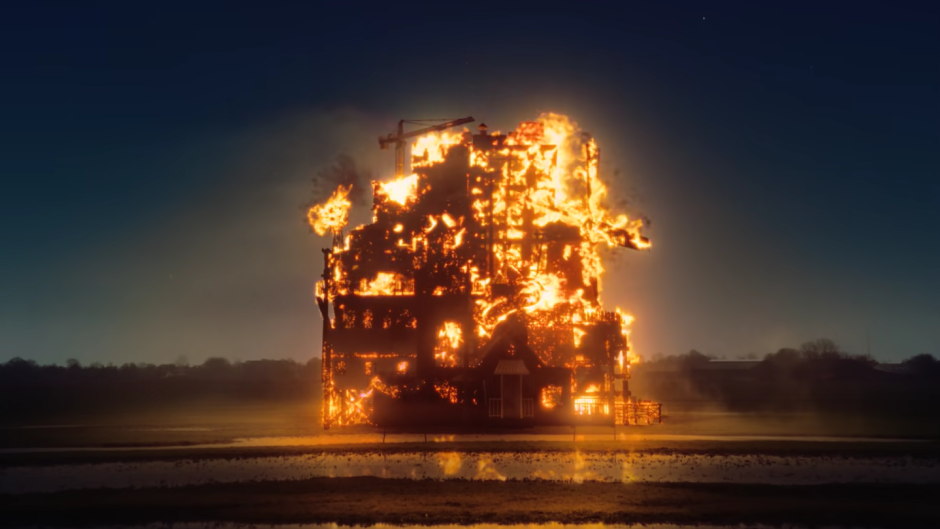Waking up Europe
As Europe re-armed leading up to World War Two, a Lutheran evangelist named Frank Buchman called the nations to moral re-armament. His Christian-initiated movement failed to prevent war but helped win the peace.
11 MARCH 2024 · 12:33 CET

My offspring have a new name for me: Europapa – after this year’s Dutch entry in the Eurovision Songcontest.
Frisian singer Joost Klein topped the charts in the Netherlands after one week, scoring over eight million hits on YouTube and Spotify. The song is also very popular in Belgium and Poland, and is already number one in Austria, Switzerland and Germany. Appropriately Klein will appear on Europe Day, May 9, in the semi-final of the Songfestival in Malmo, and is expected two days later to reappear in the final.
Check it out, activate the translation subtitles, and you will hear and read an unabashed celebration of a Europe without borders. With phrases like ‘let’s come together’ and ‘it’s a world without borders’, Klein reflects what his late father taught him about Europe. One of my sons Whatsapped: “even though it’s so crazy, this song is so hopeful, because I think it represents a huge group of young Europeans wanting to unite, an antidote to all these old white guys starting wars all over the world.”
The song’s popularity suggests he’s right. But the video clip ends ominously. A structure depicting various elements of Europe including a windmill goes up in flames. Was Klein hinting with ‘its now or never’ that the Europe we now know could disappear?
‘Never again’
For we Europeans are slowly waking up to new realities. The long post-war peace we have enjoyed in Europe can no longer be taken for granted. Swedes were recently warned by their defence minister that ‘each and every Swede’ should prepare themselves for war. Fast. The commander-in-chief of NATO’s newest member cautioned that “Russia’s war against Ukraine is just a step, not an end game – we need to realise how serious the situation really is.”
Inexperienced representatives from new mushrooming parties replace those rejected by voters for failing on housing, migration, inflation and environment issues
Half-hearted cooperation at European level, what some label ‘soft-nationalism’, ironically is paving the way for a radical nationalism. The open Europe Klein sings about could take a new turn towards illiberalism at the upcoming European Parliamentary elections, 6-9 June.
‘Re-armament’
As Europe re-armed leading up to World War Two, a Lutheran evangelist named Frank Buchman called the nations to moral re-armament. His Christian-initiated movement, Moral Re-Armament, failed to prevent war but helped win the peace, influencing believers like Robert Schuman and Konrad Adenauer. Laying the foundation for European integration on Christian foundations, these men helped initiate an unparalleled season of peace in Europe.
Robert Innes, the Anglican Bishop in Europe, and Eduard Heger, former prime minister of Slovakia, will be among those addressing these questions, on the theme: ‘Waking up Europe’
Since 2011, the Schuman Centre has initiated the State of Europe Forum to create a forum for Christians to learn from each other about how to respond to challenges facing us in Europe today. Held around Europe Day in the capital of the country holding the EU presidency, this year’s event will be in Brussels. Robert Innes, the Anglican Bishop in Europe, and Eduard Heger, former prime minister of Slovakia, will be among those addressing these questions, on the theme: ‘Waking up Europe’.
I’ll share more details over coming weeks as we shape the programme in partnership with the Together for Europe committee in Belgium. Registration will begin on April 1, on the stateofeuropeforum.eu website where more information will soon be posted. Plan to join us on Friday May 10 (evening) & Saturday 11 (all day), in the Carmelite Church near the Louiza Metro stop in Brussels.
Jeff Fountain, Director of the Schuman Centre for European Studies. This article was first published on the author's blog, Weekly Word.
Published in: Evangelical Focus - Window on Europe - Waking up Europe
